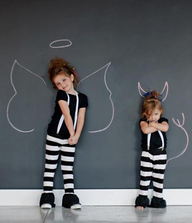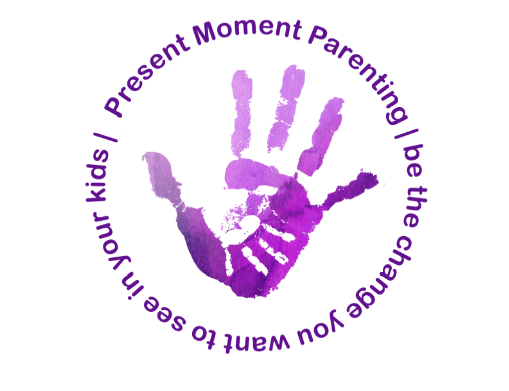
According to Educator’s Newsletter, eighty percent of us have high self-esteem in first grade, but by twelfth grade only five percent of us still feel good about ourselves. I can confirm this. Having worked with adults over the last couple of years, I have found that everyone has some version of the following three beliefs:
- I am not lovable
- I am not good enough
- I am not worthy
So how do we go from hero to zero in the time it takes us to complete our formal schooling? And how can we protect our kids from falling into the trap of feeling inferior, unworthy and unlovable – something that will affect every aspect of their lives going forward?
- I am not lovable
- I am not good enough
- I am not worthy
So how do we go from hero to zero in the time it takes us to complete our formal schooling? And how can we protect our kids from falling into the trap of feeling inferior, unworthy and unlovable – something that will affect every aspect of their lives going forward?
The number one reason for a low sense of self worth is that somewhere along the way we get the message that we are supposed to be one-sided. We are supposed to only be good, helpful, kind, loving, generous, cooperative, clever, quiet and well-mannered. We are simultaneously taught that it is not ok to be naughty, unhelpful, cruel, hateful, stingy, uncooperative, stupid, noisy or rude. This is so ingrained in us by the time we grow up that just reading these lists you are probably thinking that of course the first one is right and the second one is wrong. And herein lies the problem.
We all, in fact, have both sides. In some situations we may be helpful and in others not. We may be generous with our money, but stingy with our time. We may be clever when it comes to technology but stupid when it comes to relationships. We may be loving towards our children, but hateful of the neighbour’s dog. Every one of us will display every human trait – we will just display it in our own way or in a particular area of life depending on what is important to us.
For example… If my children are the most important thing in my life and someone insults or threatens my kids I am likely to be rude, cruel, violent or hateful. If someone is kind and helpful with my children I am more likely to be loving, cooperative, peaceful and well-mannered in return. I’m not “bad” in the first instance and “good” in the second. I’m simply a human being displaying different traits depending on the situation and what is important to me. And there is a place for both. It wouldn’t be appropriate for me to be kind, gentle and well mannered with someone who was threatening the life of my child. Every trait has a purpose in terms of our survival and growth as human beings. Every trait is necessary.
So when we give our children the message that they need to only display the “good” traits and not the “bad” ones, they are trying to negate one half of themselves. If you end up hating or resenting one half of who you are, how can you possibly still feel worthy, lovable and good enough?
We need to love and embrace ourselves and our children as whole human beings. Unconditional love is about seeing both sides and knowing that both are necessary and that neither is good or bad.
One way of implementing this in practice is to separate love from behaviour. In other words, tell your children that you love them at random moments that are not related to their “good” behavior. Give them hugs, kisses and cuddles at arbitrary moments, just because. And remind your children constantly that they are loved no matter what they do or don’t do – that you may sometime restrict behavior, but you will never restrict your love for them.
Self worth is about knowing that you are worthy just by the very fact that you are alive. That nothing that you could do or not do could ever affect your worth as a human being.
If you are struggling with low self worth, give me a call. Helping yourself is the first step towards helping your kids!
We all, in fact, have both sides. In some situations we may be helpful and in others not. We may be generous with our money, but stingy with our time. We may be clever when it comes to technology but stupid when it comes to relationships. We may be loving towards our children, but hateful of the neighbour’s dog. Every one of us will display every human trait – we will just display it in our own way or in a particular area of life depending on what is important to us.
For example… If my children are the most important thing in my life and someone insults or threatens my kids I am likely to be rude, cruel, violent or hateful. If someone is kind and helpful with my children I am more likely to be loving, cooperative, peaceful and well-mannered in return. I’m not “bad” in the first instance and “good” in the second. I’m simply a human being displaying different traits depending on the situation and what is important to me. And there is a place for both. It wouldn’t be appropriate for me to be kind, gentle and well mannered with someone who was threatening the life of my child. Every trait has a purpose in terms of our survival and growth as human beings. Every trait is necessary.
So when we give our children the message that they need to only display the “good” traits and not the “bad” ones, they are trying to negate one half of themselves. If you end up hating or resenting one half of who you are, how can you possibly still feel worthy, lovable and good enough?
We need to love and embrace ourselves and our children as whole human beings. Unconditional love is about seeing both sides and knowing that both are necessary and that neither is good or bad.
One way of implementing this in practice is to separate love from behaviour. In other words, tell your children that you love them at random moments that are not related to their “good” behavior. Give them hugs, kisses and cuddles at arbitrary moments, just because. And remind your children constantly that they are loved no matter what they do or don’t do – that you may sometime restrict behavior, but you will never restrict your love for them.
Self worth is about knowing that you are worthy just by the very fact that you are alive. That nothing that you could do or not do could ever affect your worth as a human being.
If you are struggling with low self worth, give me a call. Helping yourself is the first step towards helping your kids!
If you have found this article valuable, please sign up to my monthly newsletter below to have great parenting tips like this delivered to your inbox!







 RSS Feed
RSS Feed